
Author Spotlight
Dr. Veronica Santafe-Troncoso, University of Calgary
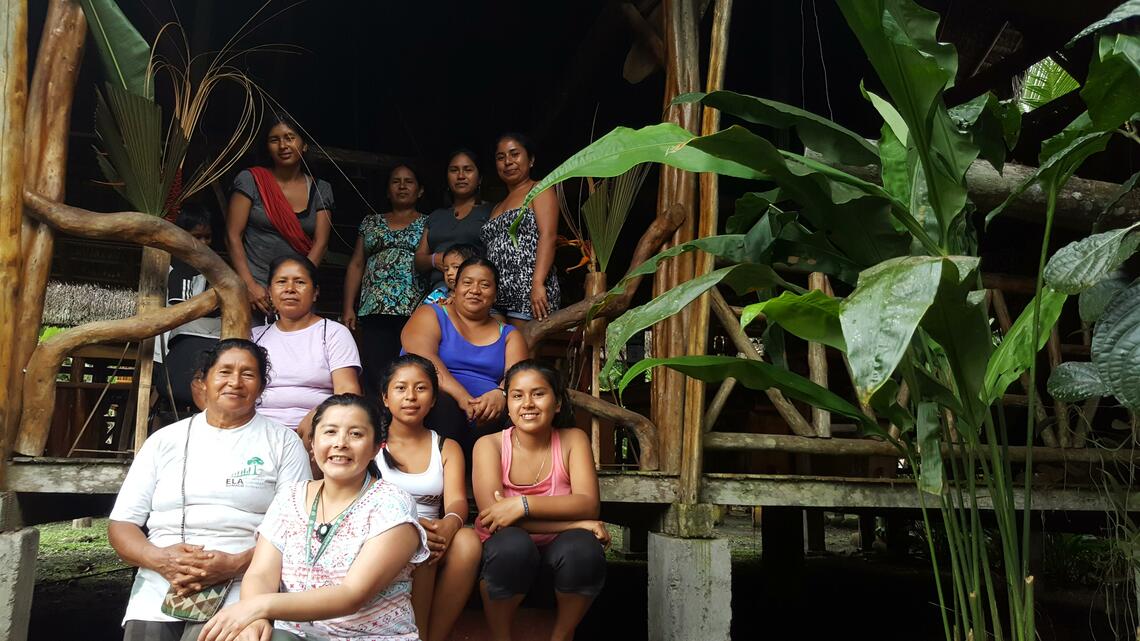
Veronica in her field research, 2019.
Food Sovereignty and Indigenous Tourism
Dr. Veronica Santafe-Troncoso is a sessional instructor and postdoctoral associate at the University of Calgary with the Sustainability Studies Program and the School of Architecture, Planning, and Landscape. She moved to Canada eight years ago from her home country of Ecuador to study at the University of Saskatchewan in the School of Environment and Sustainability with her research focused on Food Sovereignty and Indigenous Tourism. This research was done in collaboration with Indigenous Kichwa communities in the Amazonia region of Ecuador. Her thesis was inspired by her B.A. in Tourism Management and her passion to work on social entrepreneurship projects with Indigenous communities.
She shared how food sovereignty has been crucial in the political agenda of Indigenous and Campesino groups in Ecuador and around the world. The concept of food sovereignty was coined by La Via Campesina during the World Food Summit in 1996 as an alternative to neoliberal policies that were affecting the food rights of small-scale farmers, Indigenous peoples, and consumers, especially in rural areas of developing countries. La Via Campesina is an international movement that brings together individuals and communities that work for a more just food system and promotes unity and solidarity among producers and consumers around the world. In the case of Ecuador, promoting food sovereignty as a goal is so important that it was included as one of the principles in their Constitution of 2008. For Indigenous and Campesino organizations, small-scale farmers, and conscious consumers, this constitutional recognition has become a key tool to resist the advance of agroindustry, mining, and other extractive industries in their lands.
Part of Veronica’s inspiration came from much of what she was reading regarding economic development and sustainability in Ecuador and Latin America. She felt that most of the academic knowledge produced about these topics was written by people who were not connected to the communities they were writing about. She often found that Indigenous and other communities living in developing countries were described as vulnerable, poor, powerless, and in need of external experts to help them to overcome those situations. She also remembers her and her community participating in academic research that in more than one occasion did not bring back the results to the participants. She was motivated to change that. Reflecting on this she recalls thinking, “I would love to bring our own voices, as a woman from a developing country, with Indigenous and Campesino ancestry, to the academic space ” but the journey to achieve this goal has not been easy, as she had to overcome several cultural and financial issues. For instance, before starting her PhD studies in Saskatchewan, she had to learn English and adjust to the academic protocols in North America. The article she shared in the latest edition of the Journal of Indigenous Social Development is one of the chapters in her dissertation work. She notes that using journaling and art helped her communicate across languages some of the ideas and experiences that were not always easy to translate or put into words. Her research combines knowledge expressed in English, Spanish, and Kichwa (a native language among Indigenous groups in Ecuador). A focus on reflexivity was a key aspect of this researcher and helped her to continue to create ethical space and reciprocal and respectful relationships with the Kichwa communities that collaborate in her research.
Because she did not have enough funding, Veronica relied on her own entrepreneurship to help fund her research in Ecuador and academic publications. She designed and sold traditional jewelry usSovereignty and reforestation project to restore the lands of her community that have been affected by the agroindustry. Finally, to express her gratitude with the land and people where she is currently based, she is a mentor for Indigenous Clean Energy, where she supports Indigenous youth interested to develop energy and food sovereignty projects in their communities. Her goal is to create solidarity links between Indigenous peoples living in the North and South of the Americas. For more about her work read our latest edition of the journal.
Monicca Bhuda, PhD Candidate
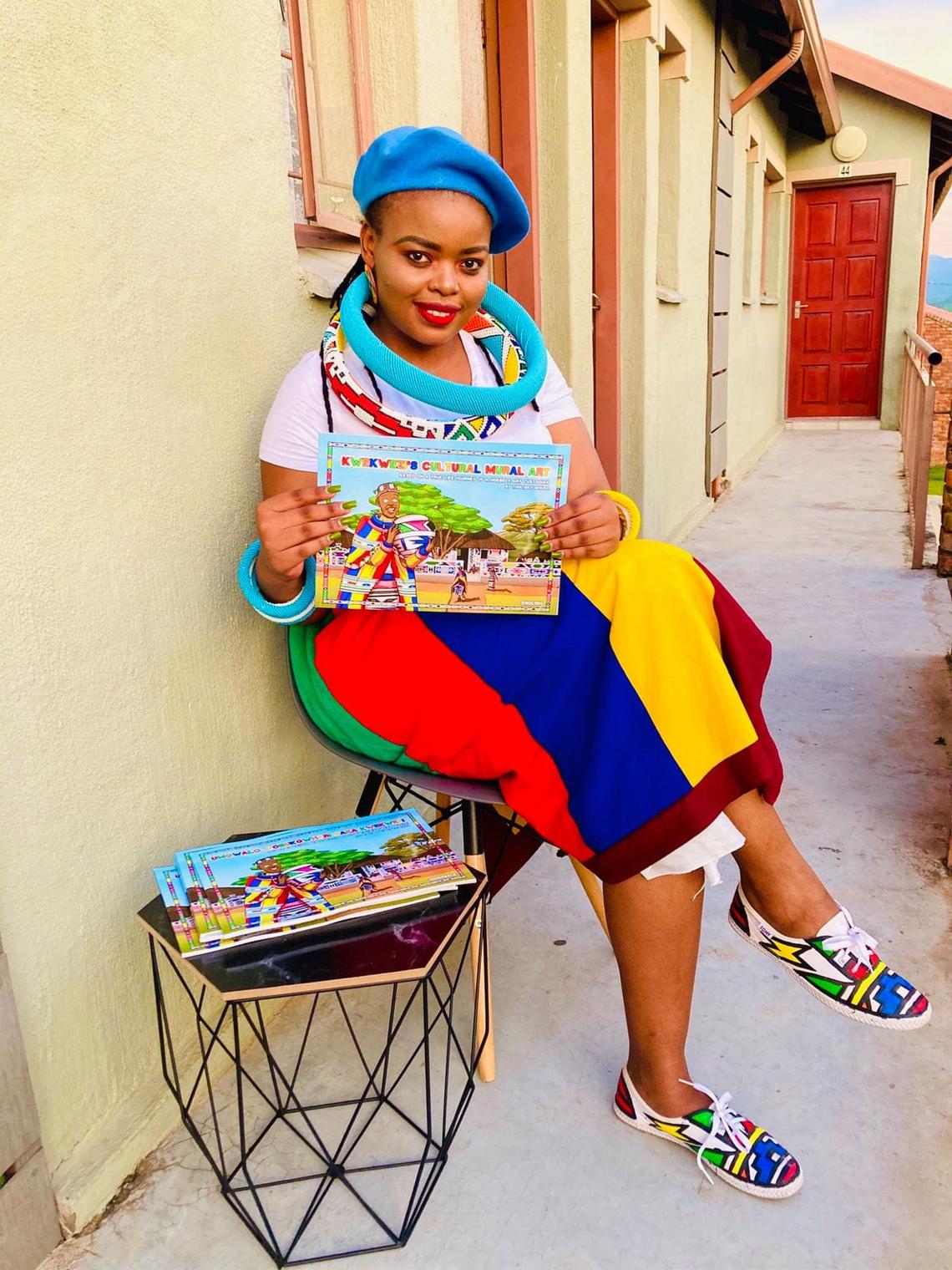
Ethnomathematic Knowledge Transmission
PhD Candidate, Monnicca Bhuda, is a Southern Ndebele woman from KwaNdebele, Mpumalanga province in South Africa. She is from a cultural group that is rich in cultural expression. AmaNdebele are people who use beadwork and mural art to convey their identity. Bhuda grew up seeing AmaNdebele women create beautiful art and pass it down to the next generation. This was and continues to be a method for preserving and protecting AmaNdebele cultural identity. She has seen AmaNdebele women sell their work to both local and international tourists. They also began traveling in the late 1980s to demonstrate their skills all over the world.
Her research interests include ethnomathematics and cultural identity. When she was an undergraduate student at North West University studying Indigenous Information Systems, she had the opportunity to study African ethnomathematics and learned that her people use mathematical ideas and concepts in their art. She knew she was destined to transmit that knowledge. AmaNdebele women use symmetrical geometry in their beadwork and mural art. Basically, they are ethnomathematicians who never attended any formal school (most are old women) yet they understand basic mathematics which is seen in their art. Bhuda wishes to conserve my people's Indigenous knowledge not only through policy frameworks that exist in South Africa, but also through education, which is why such information should be included in the curriculum and implemented in primary schools. It is critical for learners to connect the classroom subject to their cultural background. Furthermore, she wants the custodians who are women to continue commercializing their knowledge as a preservation method which is also motivational to young people because they also benefit financially. Therefore, the transmission of knowledge does not only be for cultural purposes but also for economic benefits.
Monicca Bhuda has a Bachelor's degree in Indigenous Knowledge Systems (B.IKS), a Master's degree in Indigenous Knowledge Systems (M.IKS), and is currently pursuing a Ph.D. in Social Sciences with Indigenous Knowledge Systems. All of her degrees have been accomplished from the North West University, South Africa. In the future, her hope is to broaden her interests to include linguistics/African languages. This is due to the fact that Indigenous knowledge, ancient wisdom, and identity is embedded in Indigenous languages. Our languages are the primary carriers of indigenous knowledge. Her goal is to investigate this topic and concentrate on Ndebele language development and preservation.
H jerourney began in 2013 when I enrolled in the bachelor of Indigenous Knowledge systems program at the North West University, and almost ten years later, she is working towards earning her PhD. Although, she never imagined herself as an academic, it is a calling for her, and using academics to promote Indigenous knowledge of my people is one of the best decisions she have ever made. She is currently a lecturer in culture and heritage studies at the University of Mpumalanga, and served on the national Panel on Indigenous Knowledge/Intangible Heritage, which advises the Minister of Sport, Arts, and Culture. She is also wrote a children's book about how Ndebele young girls (process) become mural artists, which will be published soon.
The IKS centre at North West University conducted so many community engagements that she was able to see the potential of IKS. She started attending conferences and networking with so many researchers with similar interests as she started my Masters degree path (IKS studies). A few scholars inspired and helped me, and she am still in contact with some who continue to guide her today.
Her article in the most recent publication of the Journal of Indigenous Social Development focuses on knowledge transmission as a way of preserving and disseminating Indigenous knowledge. Most writings about the AmaNdebele people do not focus on this aspect, which is vital because knowledge will die if it is not passed on. The transmission of AmaNdebele ethnomathematical knowledge is not adequately written about or documented. Bhuda sees it as her responsibility to safeguard this knowledge through academia. She recognized a gap and felt that she had to fill it so that future researchers could access the knowledge. She also wanted to be the voice of my people by writing about their culture and worldviews. It is critical that indigenous scholars write such works using indigenous lenses.
Dr. Felicia Mitchell
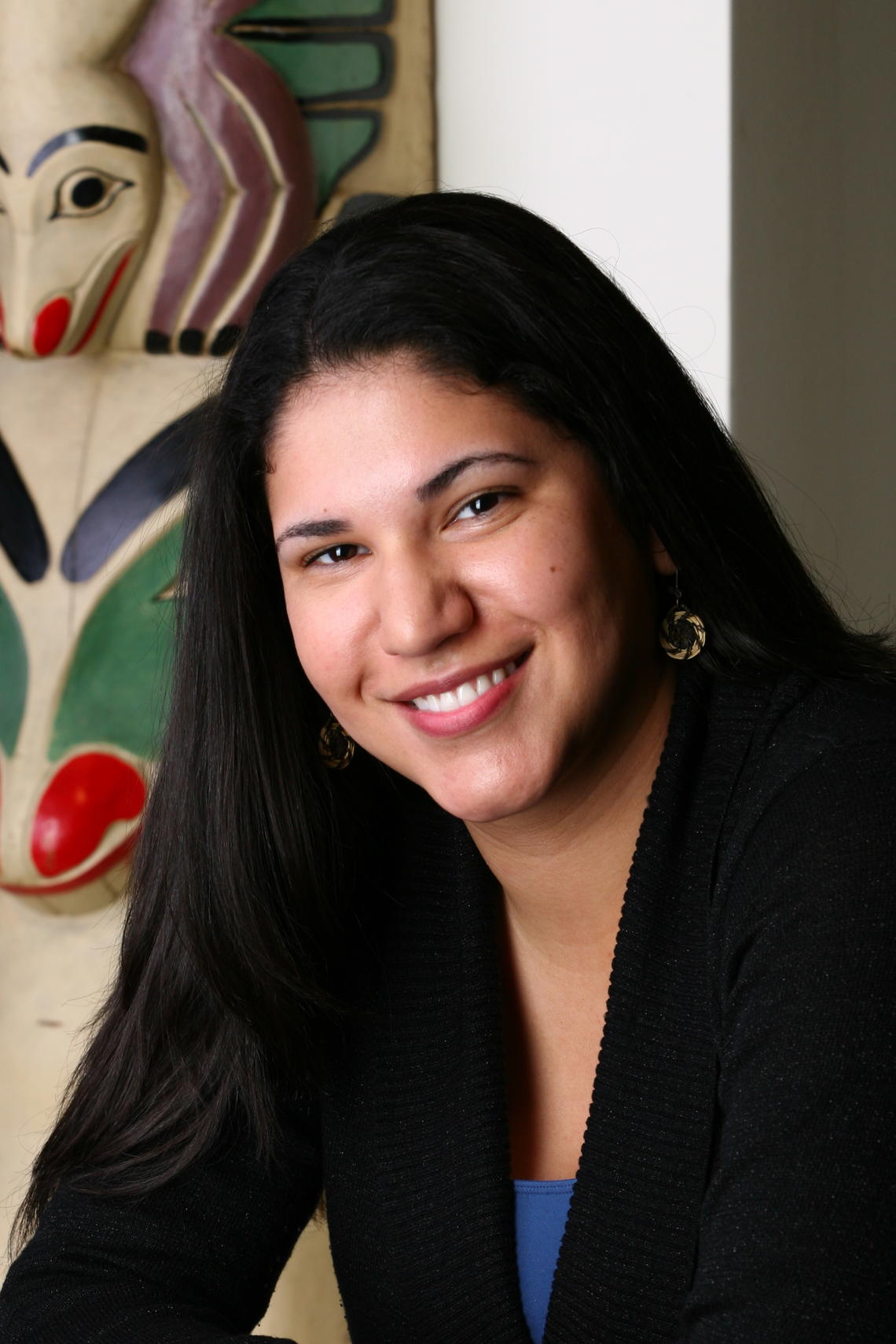
Water insecurity and COVID
Dr. Felicia Mitchell is a descendant of the Chickasaw Nation and the Chickasaw Freedman and an Assistant Professor in the School of Social Work at Arizona State University. Her research focus is on the social determinants of health of Indigenous peoples. The majority of her energy is spent on environmental change and the impact that this change has on Indigenous peoples’ health and wellness, in particular from a relational perspective. Dr. Mitchell’s article: American Indian Water Insecurity in the Era of COVID-19 is in the recently released JISD Special Issue: Indigenous Communities and COVID-19: Impact and Implications.
In her early social work career Dr. Mitchell practiced in Arizona and Kansas, both states with large Tribal Nations that continue to experience water insecurity. She saw firsthand the challenges communities faced accessing safe water and the impact this had on wellbeing and began to amplify their stories and advocate for sustainable solutions to support health and wellness. As a graduate student, Dr. Mitchell focused on water insecurity, but found that social work did not immediately see the importance of water security. A turning point in mainstream social work came with the reporting of water issues in Flint, Michigan. Her colleagues began to see interconnections between water, health, and social justice and the role of social work.
Dr. Mitchell shares “water insecurity is pervasive and like a spider web is connected to multiple determinants of health. If you don’t have water security it impacts physical, mental, and financial health.” Accessing water can take significant economic resources resulting in financial and time burdens. While these challenges existed pre-COVID-19 they have been exacerbated by the pandemic. Right now, a prevalent public health message is “wash your hands!” Dr. Mitchell asks, “how ethical and equitable is it to tell a community that does not trust their water or has to purchase and haul their water that this is a “simple solution” to preventing transmission of COVID-19?” She asserts that water security is a social justice issue that requires sustainable resources to achieve equity. However, a bright spot in these inconsistent expectations and public health messages is the spotlight that has been shone on water issues facing many Tribal Nations, including the Navajo Nation, for generations. She hopes that this media attention can be a catalyst to support equitable infrastructure to ensure water security. To catalyze this energy, Dr. Mitchell urges the importance of keeping water security in the forefront of the public’s mind, “We need this narrative going until we find solutions. Hopefully my research and writing are adding to this. It is clearly a social justice issue and social work has a role in advocating for change.”
Dr. Mitchell gets excited when she finds social work students who are interested in environmental social work. She would like to inspire students to recognize the role that they can play in this ongoing issue. Advice she would like to share with young scholars is the importance of finding their voice and telling their story,
This may sound cliché – but follow your passion and use your voice. I received the opposite advice as a student – in particular around the use of Community Based Participatory Research and in my focus on water. So, my advice is to listen to what people are saying but then critically examine where they are coming from. Ask, why they are giving you that advice? In particular, pay attention if this doesn’t feel right to you. Look critically at what is offered and ask– what do you need to do to feel good about your work? Stay with your passion – that is what will motivate you and keep you going.
Dr. Mitchell hopes that her work sparks connections for people, and in the telling of her stories she is able to provide a perspective that motivates advocacy and commitment to stand up for water security.
Dr. Kathy Absolon
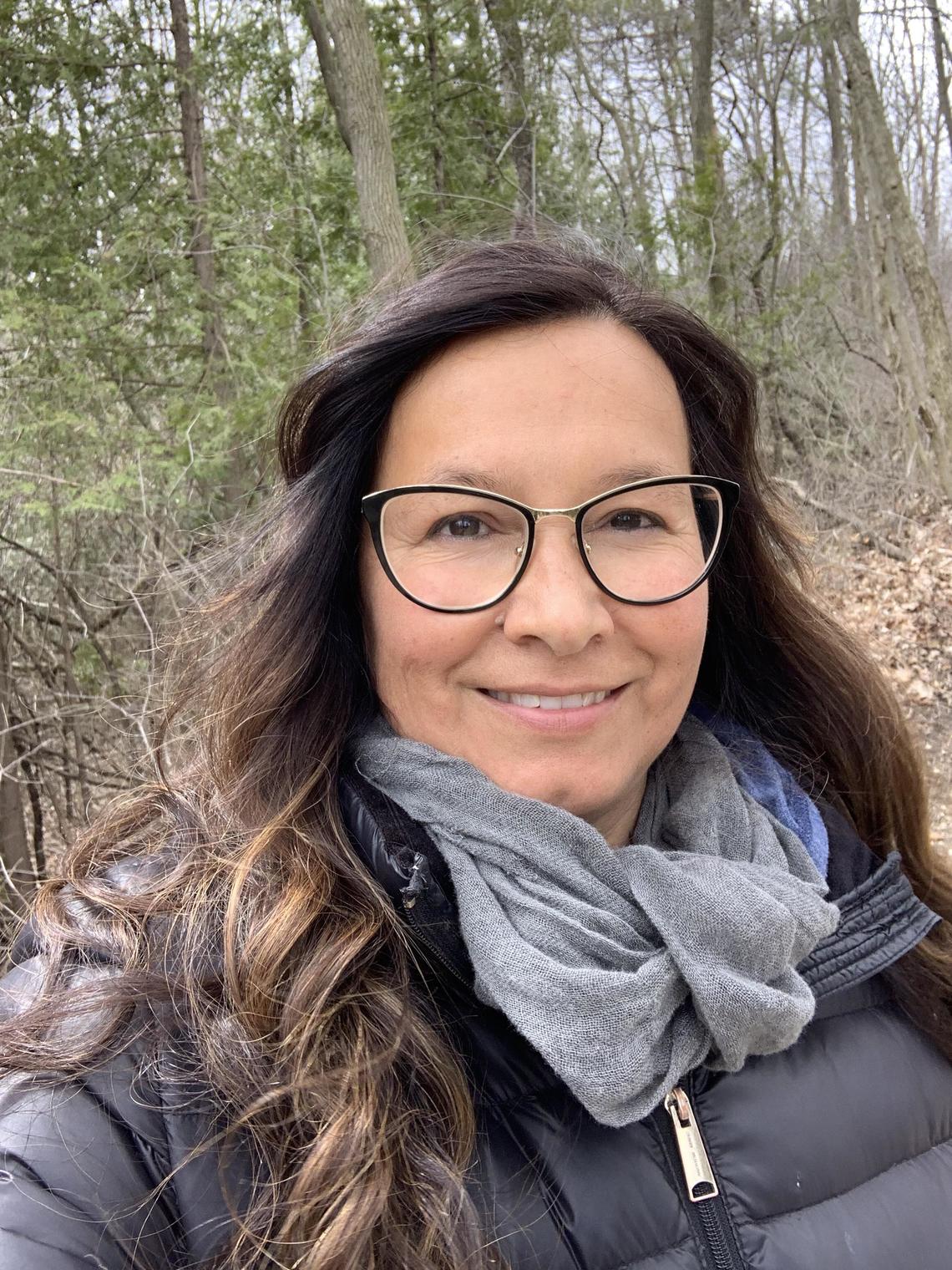
In part through the work of the Truth and Reconciliation Commission and the Aboriginal Healing Foundation, stories and testimonies of the injustices and crimes of residential schools for Indigenous peoples have been documented. For Dr. Kathleen Absolon, there was another part of these stories to be explored: “In the stories of the residential school, we have been looking at violence and impacts, but we have been healing from that. There are also stories from your mom, stories of survival, sneaky stories [stories of survival]…. not only stories of suffering.” These stories began to tap on Dr. Absolon’s consciousness:
Tap tap tap. I hear something.
“Who is that?” I ask.
Tap tap tap.
I hear it again.
Is it coming from within me?
I listen. Tap tap tap… I listen closer. (Absolon, 2020, p.1)
The poem above is presented in Absolon’s (2020) newest publication with the Journal of Indigenous Social Development. “It is really the memory of the stories that we carry. We all carry these stories through our memory. Sometimes the tap is so quiet and sometimes the tapping can’t be ignored. They need to emerge and have a life so we can remember the amazing people we come from.” In “Close to home: An Indigenist project of story gathering” she describes the methodological framework used for her “personal and decolonizing Indigenist search project” (p.2). Inspired by her own mother’s resilience, resistance, strength and determination, Dr. Absolon was interested in capturing the other side of the residential school story; how did the children survive in school? What were their strategies, ideas, and outlets of expression in the face of such oppression? Her mother agreed it was time for these stories to be shared.
Close to home is a project that took place over many years, with still more work to come, including filming the stories and co-creating films with her mother. The films retain the voice and storyteller, says Absolon, versus watering them into interpretations of the searcher. Creating space for storytellers voices is one of the benefits of creating films. Gathering stories from our kinship and communities also represents an opportunity for Indigenous scholars to explore concepts of re-searching our own roots. Indeed, Dr. Absolon encourages Indigenous scholars, especially those new to the arena, to continue to work on finding their roots, discovering what grounds them and who they are to anchor their search in discovering their Indigeneity. Finding your anchor, Absolon shares, “brings up a stronger sense of worldview and relationship, and helps to ground scholars and searchers in their ethics, vision, focus.”
Kathy Absolon (Minogiizhigokwe – Shining Day Woman) is Anishinaabe kwe who is a community helper, knowledge seeker, educator, researcher and writer. Kathy is a member of Flying Post First Nation Treaty 9. Her passion for wellness among her peoples and the restoration of Indigenous knowledge in Creation has been one of the driving forces in her life work as an Indigenous wholistic practitioner in child welfare, Native mental heath, youth justice and community work. Her academic and cultural work has been in restoring, reclaiming, re-righting Indigenous history, knowledge, cultural worldviews and making the invisible visible. She promotes this through Indigenous research methodologies and published “Kaandossiwin, How we come to know” (2011). She has authored other works in wholistic practice, social inclusion, reconciliation, community healing and wellness and Indigenous knowledge. Her most recent project is in gathering stories of resistance and resilience from her mother, a survivor of the St. John Anglican Residential School in Chapleau, ON. Currently, Kathy is an Associate Professor in the Indigenous Field of Study, Faculty of Social Work and the Director of the Centre for Indigegogy at Wilfrid Laurier University.
Dr. Darrel Manitowabi
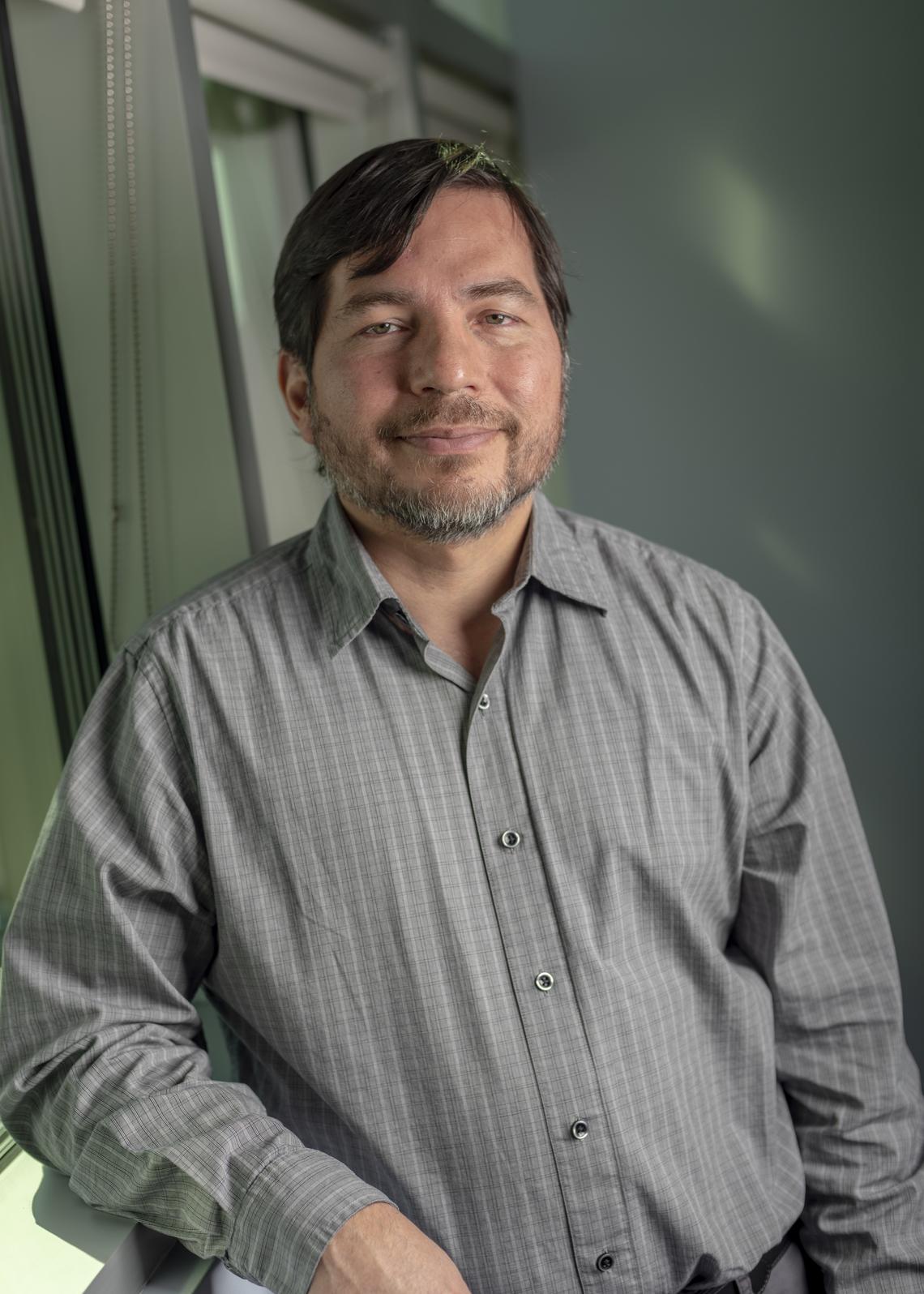
For Dr. Darrel Manitowabi, understanding Indigenous health through Anishinabe mino-bimaadiziwn has been a major focus of his career. Dr. Manitowabi presents mino-bimaadiziwn as a theoretical concept that contributes to an understanding of Indigenous health and well-being, particularly through examining the links between Indigenous experiences and perspectives and the ongoing experience of colonization. Rooted in values of Anishinabe peoples and places, Anishinabe mino-bimaadiziwn refers to the holistic experience of good health. Indigenous concepts, terminologies and ideas have always been central to Dr. Manitowabi’s work. Articulating the practices of mino-bimaadiziwn, the behaviours and actions of expressing and experiencing mino-bimaadiziwn, are more important for Dr. Manitowabi than any definitions or descriptions of the concept. Behaviour reveals the unconscious ways that people express mino-bimaadiziwn. As he shared, “I am interested in documenting a reality as it exists rather than how people want the world to be.” Similarly, Dr. Manitowabi offers the following advice to budding Indigenous scholars: “be open to the fact that the existing literature does not adequately reflect your own experience and to invest your own energy and time to address that gap; other disciplinary perspectives can’t see what’s in front of them and it takes a different perspective and viewpoint to expose those perspectives.”
In “We Stopped Sharing When We Became Civilized: A Model of Colonialism as a Determinant of Health in Canada”, Dr. Manitowabi, along with Dr. Marion Maar, offers insight into how well-being is affected by socio-economic factors at the individual, community, nation, and service systems levels. Understanding the impacts of socio-economic investments in Indigenous communities over the last 50 years becomes increasingly important as more and more health disparities emerge for Indigenous peoples. Through the theoretical framework of mino-bimaadiziwn, this paper reveals the need to further understand colonialism as a social determinant of health. Importantly, the authors argue, “Based on our model community programs must focus at the same time on good health/mental health as well as bolster self and economic self-determination in order to support good health, mino-bimaadiziwn” (p. 16). Read the article here.
Dr. Manitowabi is an Associate Professor in the School of Northern and Community Studies, Laurentian University, and Assistant Dean of Graduate Studies, Northern Ontario School of Medicine in Sudbury, Ontario. He holds a cross-appointment in the School of Indigenous Relations, Laurentian University and the Northern Ontario School of Medicine, Human Sciences Division. He is an Indigenous anthropologist with research interests in medical and applied anthropology and has published articles on Indigenous gambling, Ojibwa/Anishinaabe ethnohistory, urban Indigenous issues, and Indigenous health. He is 3 Fires Anishinaabe and his home community is the Wiikwemkoong Unceded Territory and he currently resides in the Whitefish River First Nation.
